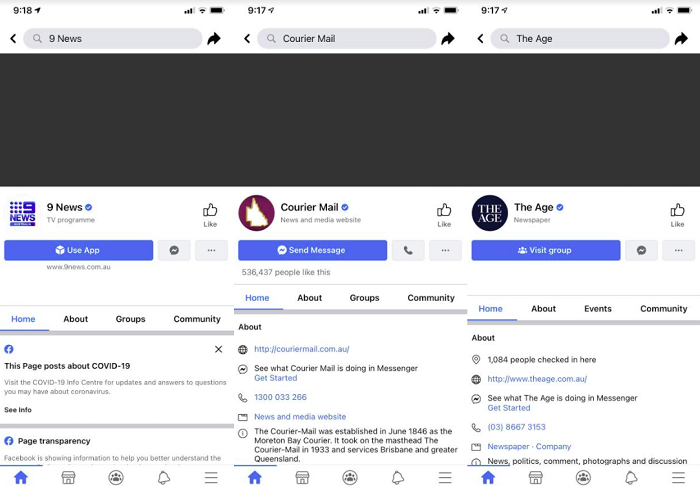Meta has announced the next stage of its opposition to the Canadian Government’s Online News Act, which will now see Canadian publishers banned from Facebook and Instagram, in order to avoid fees and charges associated with their access within Meta’s apps.
Canada’s Online News Act ostensibly aims to address imbalances in the local news ecosystem, by forcing large online platforms, like Meta and Google, to pay publishers for news content that’s shared across their platforms. But both Meta and Google have pushed back, saying that the proposed regulations don’t accurately reflect the state of the modern news ecosystem.
But the Canadian Government is pushing ahead anyway, which has now led to this next step.
As explained by Meta:
“In order to comply with the Online News Act, we have begun the process of ending news availability in Canada. These changes start today, and will be implemented for all people accessing Facebook and Instagram in Canada over the course of the next few weeks. For Canadian news outlets this means that news links and content posted by news publishers and broadcasters in Canada will no longer be viewable by people in Canada.”
It’s a backward step for Canadian publishers, which will impact their capacity to reach audiences across Meta’s apps, with the broader push to force commercial negotiations with Meta making even less sense now than they did when the Australian Government initiated similar legislation back in 2021.
That also led to a temporary ban of news publisher content in that region, with Meta opposing the original terms of the Australian ‘Media Bargaining Code’.

The flaw in this case was that Meta returned to the negotiating table, and arranged a new bargain with Australian authorities, which led to a compromise deal. Since then, the Australian Government claims to have facilitated more than 30 commercial agreements between Google and Meta and Australian news businesses, which it says has diverted over $AU200 million to local media providers, sparking inspiration in other regions where local publishers are losing out.
Though that number is declining, and as Meta increasingly shifts away from news content, in favor of short-form Reels clips, sourced from users, the value of news for the app is now far lower than it ever has been, which leaves Canadian publishers in no position to negotiate.
Essentially, Meta will likely see very little impact from banning news outlets, but the outlets themselves will suffer a reduction in referral traffic, and the end result will likely see a significant change in tact from Canadian authorities. But till then, there’ll likely be uproar and confusion for publishers and Facebook users as a result of the ban.
That’ll also impact non-Canadian publishers, with Meta noting that:
“News publishers and broadcasters outside of Canada will continue to be able to post news links and content, however, that content will not be viewable by people in Canada.”
So if you run a news platform, and you get traffic from Canada, expect to see a drop.
Really, Meta should have just held firm in Australia, and not negotiated any deal, because by working with the local government, it showed that there are ways for publishers to squeeze more money out of Meta’s business.
But again, Meta has since moved on from news, cutting commercial agreements, its news tab, even eliminating political news entirely for some users as part of an experiment to see whether it could do without.
The rise of Reels has made this increasingly possible, with Meta now sourcing entertaining content from across its apps, which has helped drive engagement without the need for divisive political debate.
That’s increasing time spent, and reducing the value of news publishers in the app. Which will likely see them held out of Meta’s apps in Canada till the Government re-thinks its proposal.



